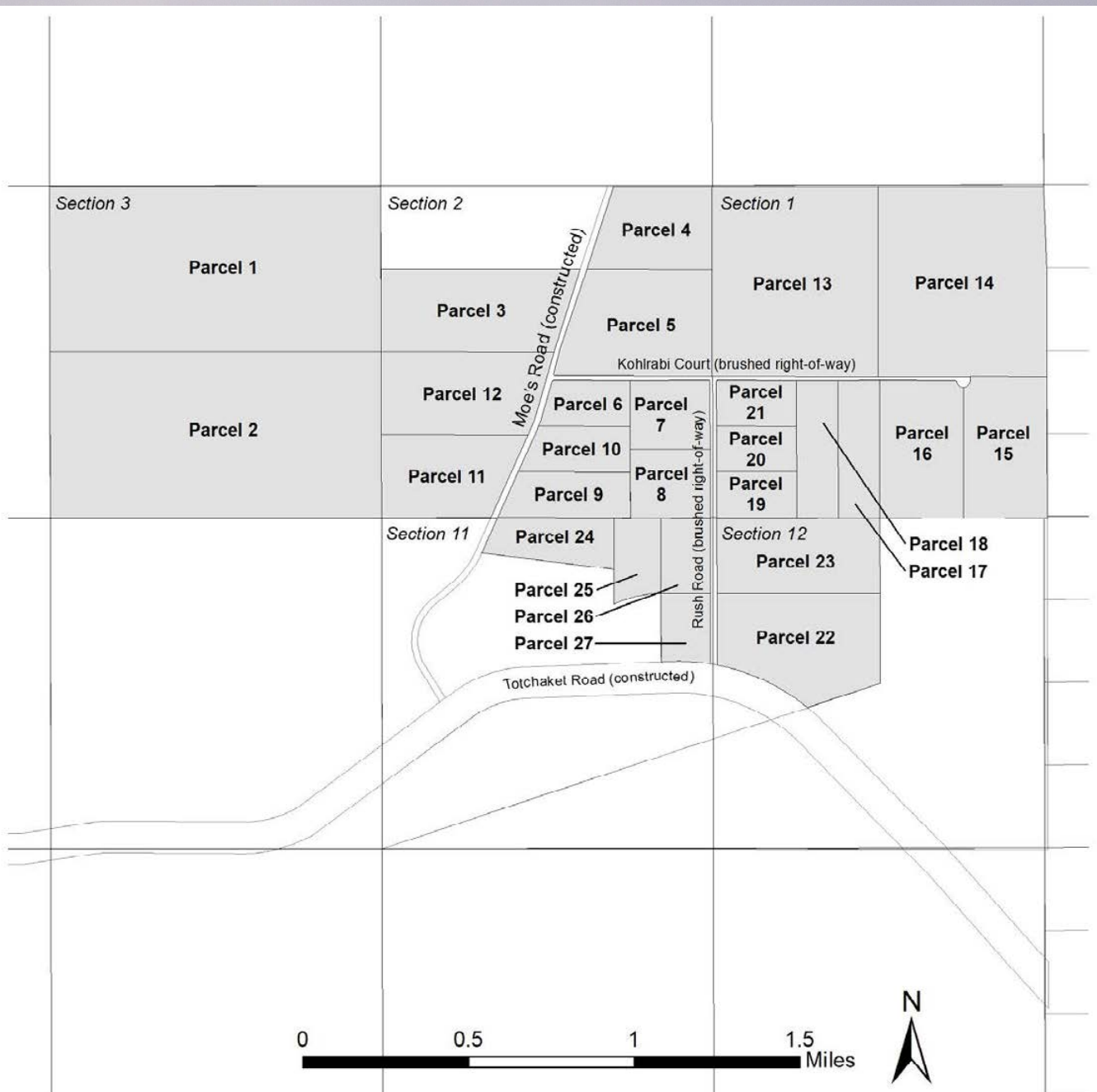Dunleavy's campaign timeline handicaps Nenana ag plan with conflicting claims
The time demands of the Dunleavy reelection campaign dictated the decision to start selling lands in the Nenana agricultural area before the state worked out key details about access and electricity.
This lack of preparation guarantees that the property is less valuable. It also reflects Dunleavy’s willingness to sacrifice public benefits for the sake of his personal interest.
On May 26, Dave Schade, the director of the state Division of Agriculture, said this on Facebook about the Nenana ag land disposal and steps to make the land more accessible and valuable:
“One of the things that I’m really happy to see is that we’ve cleared the lot lines. So you will know where your corners are, you’ll know where the roads are gonna be put in. Some of the roads are there. But you can clearly see where the rest of the access roads and we’ll get started on putting in access roads and electricity, that design work is being discussed and developed for next year as well. So we’ve got a really good start for this project.”
“We’re looking at 2,000 acres out of 148,000 acres that we’re looking at,” he said.
But the 72-page brochure that “farmers of the world” are supposed to use to determine how much to bid on the ag tracts the state is selling doesn’t mention the state building new roads next year and providing access to electricity.
The brochure says this about electricity and other utilities, “There are no known services that exist within or in the immediate vicinity of this project area.”
And it says this about reaching the parcels once you get off the 12 miles of the developed Totchaket Road: “Access ranges from developed gravel roads to off-road vehicle trails.”
The head of the agriculture division said May 26 that the state plans to provide access roads and make electricity available next year, but the parcels are being sold with no guarantees that the roads and power will be there. This depresses the market value and creates confusion about what to expect. The state will get less money than it should if bids are held down by a lack of information. It’s a mark of poor planning.
Roads and power have a big impact on market value. The alleged market value, the basis for setting minimum bids, excludes what roads and electric access will add to market value. The deception will depress bids and generate less income because the market value is based on false information. Or maybe not.
The brochure says the state accepts no liability and issues no warranty about access. Having no electricity and no access roads guarantees that the bids will be lower because the property is worth less.
As a result of the campaign pressures, the information provided to bidders in the brochure—which is all that really counts—conflicts with what the director of the Division of Agriculture promised about improving access and making sure electricity is available.
This slipshod approach is no way to start what the promoters contend will be a 30-year effort to get 100,000 acres of agriculture production. The state should have taken the time to get the details straight, regardless of the time demands of Dunleavy’s re-election campaign.
Your contributions help support independent analysis and political commentary by Alaska reporter and author Dermot Cole. Thank you for reading and for your support. Either click here to use PayPal or send checks to: Dermot Cole, Box 10673, Fairbanks, AK 99710-0673.

